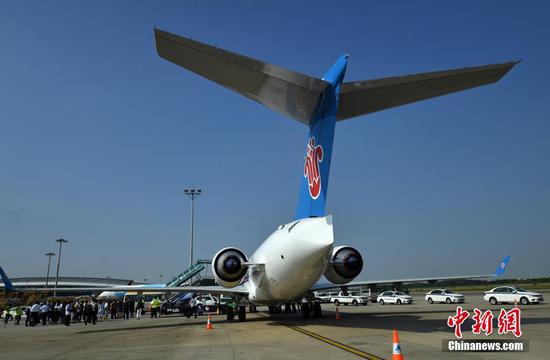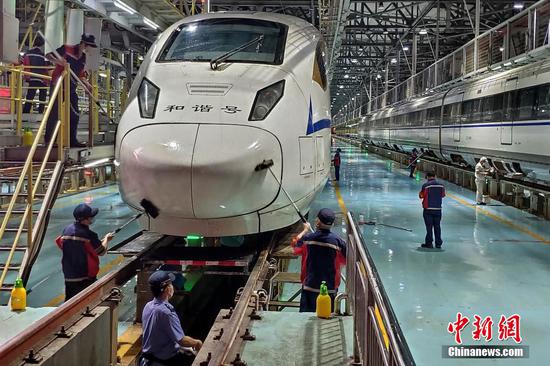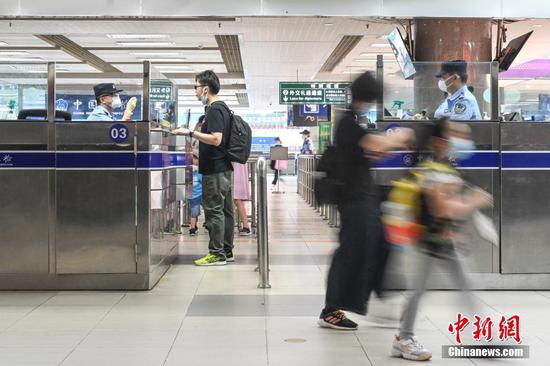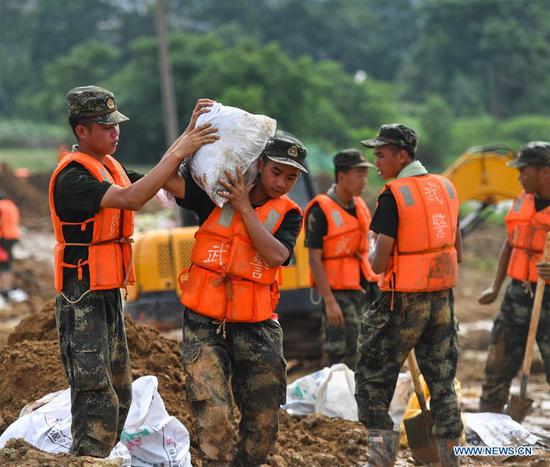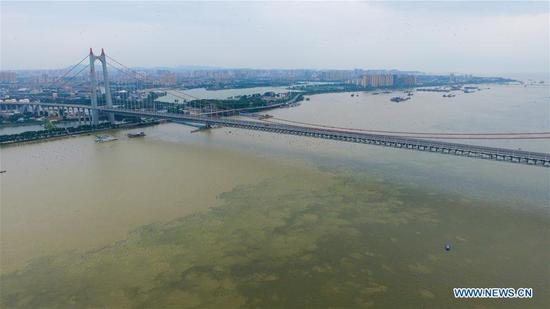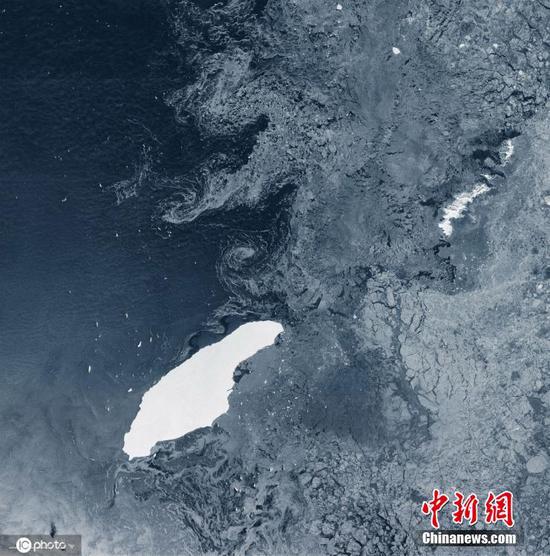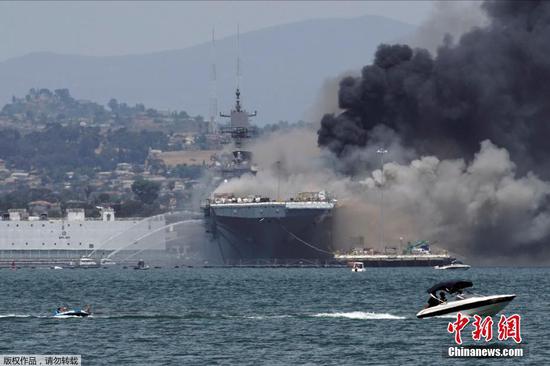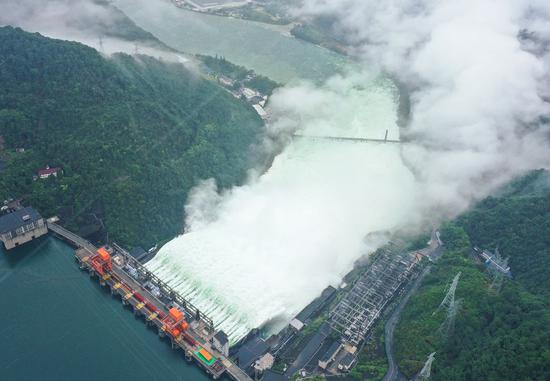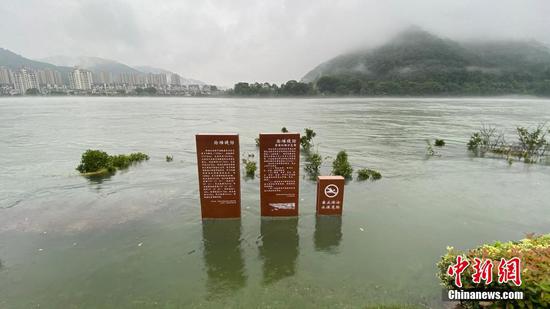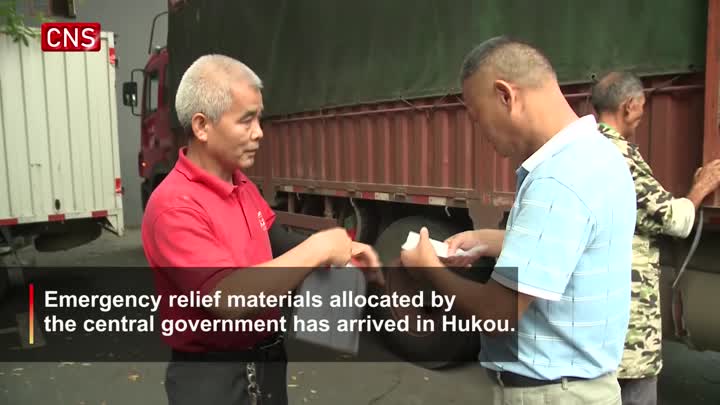Despite record high global debt levels, governments should continue to extend lifelines to households and firms as countries gradually reopen their economies, an International Monetary Fund (IMF) official has said.
"If we would be asked about the risk of very high debt levels versus the risk of premature withdrawal of fiscal support, we would say that it would be more dangerous to withdraw public's fiscal support prematurely," Vitor Gaspar, director of the IMF's fiscal affairs department, told Xinhua in a recent video interview.
According to IMF's latest estimation, the pandemic has prompted an "unprecedented" fiscal policy response of nearly 11 trillion U.S. dollars worldwide, pushing global public debt to reach record high level, at over 100 percent of global gross domestic product (GDP).
Noting that the comparison with the global financial crisis is "very instructive," Gaspar told Xinhua that above-the-line budgetary measures since the beginning of the epidemic "are already well above what we have seen in the global financial crisis for the years of 2008, 2009 and 2010."
In 2020, relative to the IMF's January World Economic Outlook, fiscal deficits are expected to be more than five times higher in advanced economies and to more than double in emerging market economies, leading to an unprecedented jump in public debt of respectively 26 and 7 percentage points of GDP.
Even with the record debt level, Gaspar said it's "crucial" that governments take further fiscal actions to continue to support households and firms in case the COVID-19 is still rampant.
"As we move from the great lockdown to gradual easing of restrictions, it's important that fiscal support stays in place to help the economy adjust gradually to a new, sustainable and inclusive growth path," he said.
RISKS OF HIGH DEBT LEVEL
Overall, public debt is expected to "stabilize" in 2021, spurred by low interest rates and a projected strong rebound in economic activity in the baseline, Gaspar said, though "caution is advised."
"Policymaking in today's world, which is a world of fast change and transformation, is always risk management," he said. "And so it's crucial to build in resilience so that policies are prepared to cope with the unexpected."
Risks concerning public debt include a sudden tightening of financial conditions, as it happened earlier this year triggered by the COVID-19 crisis.
"At this point in time, interest rates are very low, financing conditions are very easy. Many emerging markets, many frontier market countries have been able to access international bond markets, but that was not the case as recently as March," said the IMF official.
"And that's a reminder that market sentiment shifts relatively quickly and interest rates cannot be assumed to be low forever, financing conditions cannot be assumed to stay generous forever," he told Xinhua.
Gaspar noted that one element of sustainability and resilience is for public sector balance sheets, for public sector treasuries to be prepared, to cope with a situation where market conditions turn adverse, and "even if they turn adverse suddenly."
Another point Gaspar stressed is that "one should think about public debt in terms of an encompassing view of economic policies and how to manage the economic challenges that a country is facing," adding that the main challenge is a sustainable, inclusive and resilient growth.
Inequality is going to be very salient during and after the COVID-19 pandemic, the IMF official said, noting that estimates suggest that people living in extreme poverty are going to increase by tens of millions.
"I believe that all fiscal policy should take that into account," Gaspar said. "On the spending side, it's a lot about investing in people, giving access to education, giving access to health, giving access to fundamental basic goods and services."
"On the revenue side, on the tax side, is making sure that people contribute in line with their ability to pay, and that forms of behavior that have become generalized like tax avoidance and tax evasion are effectively fought perhaps (with) a global cooperative approach," he said.
CHINA HAS ROOM TO MANEUVER
According to IMF's estimation, China's public debt to GDP ratio will continue to grow next year, Gaspar said, while noting that China "does have fiscal space" in case further action is needed.
Commenting on China's fiscal response so far, Gaspar said China's response is in line with IMF recommendation, with the top priority being public health and containment of COVID-19.
"China seems to have been successful at doing that for a prolonged period of time. There were no new cases reported in China or very low number of cases reported," Gaspar said.
Speaking of the June outbreak in Beijing, the IMF official lauded the Chinese authorities' quick responses with "quite intensive" testing and "very thorough" contact tracing, in what he called "localized containment measures."
"This strategy is a strategy which is much more cost effective than a generalized lockdown," Gaspar said. "It has lower economic costs. It has lower financial costs. It has a much more limited impact on public finance," he said, adding that it also reinforces confidence and trust in the population.
Gaspar also noted that fiscal policy is "appropriately deployed" in support to the recovery of the Chinese economy and households and firms that need help.
Even with growing debt levels, the IMF official said China can have and use fiscal flexibility in the short to medium term. "China has that room to maneuver. It has used it well, it should continue to use it well," he said.
Gaspar, However, noted that the public debt level in China and in other places "cannot continue to grow forever."
"So it's important to have a medium to long-term framework that eventually will stabilize and even reduce the levels of public debt," he said. "Having a comfortable financial position is a characteristic of resilience, which will serve China very well in the event of future shocks, future disturbances, something that China wants to have, I'm sure, in store."
Going forward, the IMF official said fiscal policies should be regarded as structural policy, serving the model of sustainable, inclusive, resilient growth that "China will want to choose for itself."
"I would, for example, very much emphasize the importance of green growth, the importance of controlling CO2 emissions," he said. "It's important to provide incentives for firms to adopt green technology and clean transport."
Gaspar also noted "it's very clear" that enhancing public health care will be happening in China and elsewhere. "I believe that most societies, probably China as well, will feel a need to reinforce social safety nets," he added.









